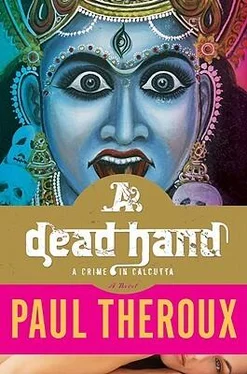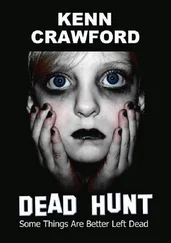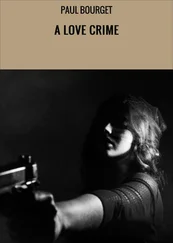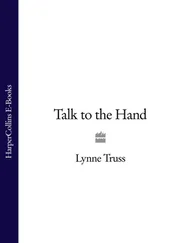Mrs. Unger seemed suddenly fretful — I understood she was busy and couldn't blame her. This was the business that financed her good works. But Charlie's indifference to me seemed calculated. His resentment was palpable, emanating like a bad smell. It was both possessive and antagonistic, a stink of rejection and annoyance, a hatefulness that warned me against coming too close.
I tried again, another remark, out of sheer malice, because his hostility was so blatant. I said, "These floorboards are solid teak and so wide. Imagine the age of the trees, the size of them. Probably centuries old."
A boring observation, just chatter, which was precisely what I intended — another test. And it had the effect I expected — nothing, or rather Charlie's effort at expressing nothing. It was more trouble for him to make it obvious that he was ignoring me than for me to make these silly observations.
Perhaps I wasn't playing. Perhaps I really did resent his taking his mother's full attention, as he resented my being there. He had his rights as a son, but I adored the woman and I had rights too. I was at least owed the recognition that his mother also cared for me, in a way he couldn't share.
Mother and son, touching, conferring, jostling, excluded me, while I watched from five steps behind. I thought that it was probably impossible to get between them or share their confidence. I thought too that whatever arrangements I made with Mrs. Unger, I would always be regarded as an intrusion by her son. I could never be close to both of them, but that was all right with me. I had no interest in him, and as Mrs. Unger herself had said, Charlie had Rajat.
The other oddity I noticed (and all this happened within a few minutes of my entering the funny old schoolhouse building) was that she was different here, as she had been different in the car, and again at the temple, and different from my memory of her in her fragrant vault at the Lodge. In every new context she revealed a new aspect of her personality, and at times a new personality. I was reminded of the boldness of her letter to me, her fluttering submissiveness over drinks when I'd first met her, her beguiling assertiveness in the massage room. At the Kali temple and just afterward, she had seemed regal, trailing her bloodstained sari through Kalighat. And now here, mother and manager, all business, headed through the big pair of doors to the holding pen.
Holding pen was how it seemed to me. This impression was emphasized by the mass of small children among the scattering of crouching women. Sometimes a mother can hold a child in her arms in such a way as to present the child as a shield. A few of these women did that, held the children in attitudes of protection, but protecting themselves, hovering, cowering behind these anxious-looking kids.
Only an hour or so before, I had seen something like this in the market at Kalighat, the sight of small tethered goats bunched together in fear and bleating like children. Both were about the same size too. The glossy sleekness and innocence of the goats were echoed by the scrubbed faces of these sweet-faced children, so tiny, so clean, so wide-eyed in terror. The mothers (they had to be mothers; no one else would have held them so tenderly) also looked fearful, raising their faces to the imposing foreign woman in her white sari, the tall young man in the kurta beside her with his hand resting lightly on her elbow, his expensive sunglasses propped pretentiously on his head. He was prematurely losing his hair at the crown, and I felt this was his way of disguising the fact, a balding man's obvious ruse.
So I did not see children, I saw small, intimidated, and bewildered goats, a great murmuring roomful of them, fearing sacrifice, anticipating their beheading. I was ashamed of myself for thinking this. It was the sort of gloomy intimation I often had in India, among so many people they seemed not just doomed but expendable; bewildered, existing only to die.
This awful thought was unfair of me and unworthy of Mrs. Unger, who sacrificed herself every day to help such people. I try not to see crowds anymore. I look for individuals who need help, she had said. I needed to remind myself of her honesty and her effort, this beautiful woman who ran an orphanage, a school, a clinic, and an Ayurvedic spa. I was a mere bystander, a tourist, a hack, a voyeur. Even Charlie, in his weird self-lmportance and snobbery, was a more sympathetic and worthy person than I was, roaming the streets and whining about my writer's block.
Charlie was greeting the women, introducing his mother, making his way through the crowd of children, most of whom were held by their mothers, many seated on the wooden floor, some of them standing, staring at the tall woman.
They fell silent as Mrs. Unger walked among them, all their faces turned to her. At the far side of the room I noticed Rajat and, still feeling conspicuous, I went over to him to say hello.
"Quite a crowd," I said, another banality, but socializing depended on banalities. The point of a platitude was to appear un-threatening, even a little dim.
"The monthly intake, but fewer than usual."
"So this is a regular event?"
"Once a month. It's not that many. Ma won't take them all. She'll be disappointed."
"I'm amazed she has room for them."
"There's a monthly release too. It almost balances out." He was looking past me and across the room at Mrs. Unger. "Ma's been to the temple."
"How do you know?"
"Spatter," he said, hissing the word. "Bloodstained kind of suits her."
I turned away from him to look.
"It's a good color for Ma." Then he spoke as though reading the label of a chip on a color chart. "Dried blood."
I could not read Indian faces. I could not tell what emotion lay behind his expression. He stared at me, his lips fixed in a sort of smile that had no mirth in it, only (as I guessed) a sly contempt for my ignorance — another snub, perhaps.
In order to see his expression change, I said, "I've been to the hotel."
He went on staring. He said, "Oh?"
"The Ananda," I said.
"You told me that already."
"I went back again."
Now his smirk seemed pasted on. Was he ridiculing me for making this second visit? His eyes were blank and emotionless. I had no idea.
"I just want to forget all about it. It was a terrible experience."
"There was one detail you forgot to tell me."
"I told you everything." He seemed to be defying me by not blinking.
"You didn't mention how the dead boy got to your room."
"I don't know how he got there. Obviously someone brought him to the room while I was asleep."
"Brought him how?"
"I have no clue."
"You didn't see what he was wrapped in?"
In a harsh whisper he said, "He was naked."
Was Rajat being obstinate? I didn't want to help him with the word "carpet."
"You just saw him and nothing else?"
"What else would there be? Isn't a dead boy enough?"
Now I could read his expression: it was tight with the memory of seeing the dead boy, his eyes damp with fear, his lips twitching on his murmuring mouth. I would have felt sorry for him except that I was the one who had been assigned the task of proving whether what he said was true.
Across the room, Mrs. Unger had bent to pick up a child from its mother's arms. She spoke to the woman, reassuring her as she stroked the child's head — a little girl in a ragged purple dress that reached to her bare feet. As she hoisted her I could see how skinny the child was, gaunt and hollow-eyed, with the dull dry skin of malnutrition, the bright eyes of fever, and a lassitude that made her limp and compliant in Mrs. Unger's arms.
Carrying the child like a symbol of authority, looking even more like a mother, Mrs. Unger greeted the other mothers, spoke to their children. She shifted the child to the crook of one arm, and the fact that she was holding her this way seemed to make her more approachable. She walked around the room, stepping among the seated and kneeling children.
Читать дальше












